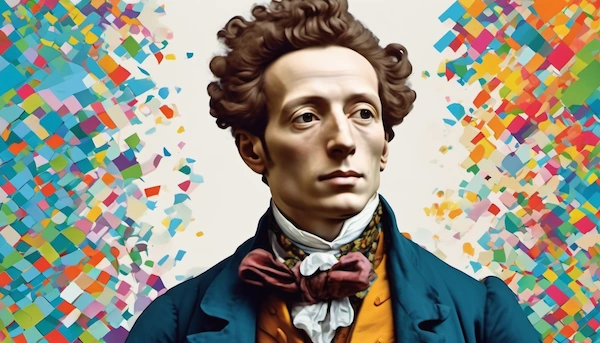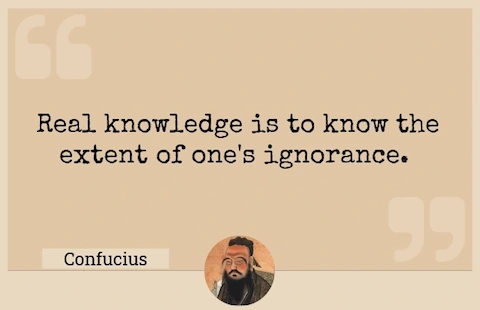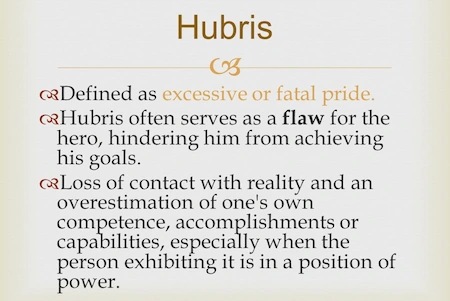In this article we will discuss a very important, if often underestimated, topic, namely ignorance and its impact on society. We will take a look at its evolution in history, trying to understand how the ancients perceived it and how it is viewed in contemporary times. We will try to understand the root causes behind closed-mindedness and the motivations that drive a person to boast about his or her intellectual limitations. Through a modern movie about a society based on stupidity, we will stimulate readers to reflect and try to get out of the tunnel of ignorance.

The decline in IQ in recent decades
There are various methods for measuring an individual’s level of intelligence, one of which is the IQ (intelligence quotient) test. This examination assesses logical abilities, such as problem-solving through reasoning, and although it cannot analyze the complexities of the human mind, it is still a standard and fairly reliable tool. According to studies by U.S. psychologist James Robert Flynn done in the 1980s, the level of IQ in the population has been gradually declining since 1970, in contrast to surveys prior to that date, which showed steady growth generation after generation. Therefore, we can assert that human intelligence is regressing, facilitating ignorance in its systematic spread.
Schooling and education
The role of education in the past
In earlier centuries, people educated themselves differently than they do today. There were academies, religious institutes, colleges and universities that provided access to any field of knowledge. They were not structures aimed at specializing students only in one particular field, but provided them with a holistic view of knowledge.
However, it was only members of the wealthy classes who were able to participate in these courses or could afford private teachers. Levels of education and culture were very high; it was not uncommon for students to know several foreign languages or to juggle a variety of disciplines, including the arts, without difficulty. The Italian writer Giacomo Leopardi represents a perfect example of these teachings reserved for nobles. He was in fact a man of great culture; he was not simply a writer whose literary works represent one of the pillars of Italian literature, but he also learned many foreign languages, such as Greek, Latin, Hebrew, French, English, Spanish, and German, and took an interest in philosophy, logic, and physics.
While the aristocrats could draw on all the knowledge available up to that time, the poor classes were illiterate and did not have the means to educate themselves. They were excluded from knowledge, as their role was to work and pay tribute in order to be able to support themselves. One can say that culture, in the past, was therefore subordinate to the social class to which they belonged.

The role of education in the present
Things changed during the 20th century because of the needs of companies for skilled workers who could use and design the machinery essential for production on an industrial level. So, governments instituted compulsory schooling and created public schools that everyone could have access to. This was an important event, as it addressed the serious problem of illiteracy that plagued many states.
Today, in the Western world, education is accessible to all; fortunately, there is no longer a division based on social rank, and even non-wealthy students can study at the most prestigious and renowned institutions. Given this background, one would think that nowadays the cultural level and spread of knowledge would be higher, but is this really the case? If you take a close look at people, you will instead notice widespread ignorance.
From education to specialization
This widespread lack of culture is due to the declining quality of learning offered by educational institutions. Today’s schools offer schoolchildren generic and shallow notions and focus more on the business world, increasingly resembling workshops aimed at learning a trade, rather than focusing on knowledge. In the past, much emphasis was placed on the humanities, such as philosophy, history, literature, philology and the arts, while in modern times there is a preference for the study of technique and practice, thus creating specialists who do not possess general knowledge or critical spirit.
Society and the loss of values
The role of society in encouraging ignorance
Schools are not solely responsible for this cultural degeneration, as their real task is not to indoctrinate, as totalitarian regimes do, but to provide tools and insights to train individuals in critical and analytical thinking. The ignorance that is rampant today is primarily a societal matter. People with little culture are no longer ashamed of their shortcomings or their linguistic gibberish, since no one dares to point out to them the errors or nonsense they utter. Uneducated ones put themselves on the same level as others because they lack the humility to recognize their own status, believing that they can match a learned person. They often not only express opinions or judgments on subjects about which they are unaware of nearly everything, but also sneer at the one who is more knowledgeable, criticizing his or her ideas without first understanding them thoroughly. When they want to put on a show to the detriment of the more knowledgeable, ignorant people usually need the support of their peers to back them up and make their, albeit erroneous, conviction prevail. On their own, they could not sustain a conversation, so, exploiting the herd effect, they rely on their entourage to mock those who display a more complex understanding of the world than their own.
The link between pride and ignorance
Episodes of “geek” mockery, once relegated to settings such as schools and pubs, are now increasingly prevalent because of social media. These platforms, as much as they claim their purpose is to bring people together, also create spaces where people argue and, rather than exchange opinions, exchange insults. It is not so uncommon for post content to be mocked and criticized by the first keyboard lion passing by, perhaps even ungrammatically. Digital social networks have made it possible for everyone to express their opinions and spread them to a wide audience, who may not even be interested and who, in real life, would gladly do without hearing or reading certain outbursts.

The pillars of hyper-technological humanity
Many individuals think so highly of themselves that they do not recognize their limitations. They feel omnipotent and omniscient, believing that they know everything. This is a consequence of modern “culture”, in which human beings, through what they call science but we prefer to call the scientific method, believe they can explain and know everything. They no longer need a guide, religious or secular, to show them the way and explain the nature of events. Today’s humanity considers itself perfect and is unwilling to acknowledge its own flaws. It thinks it lives in the best possible world and has given up the desire to improve itself and evolve in terms not only of material and scientific, but also of inner and spiritual aspects.
The loss of ethical-moral values
The German philosopher Friedrich Nietzsche, in his work entitled Thus Spoke Zarathustra, had a madman say the following words: <<God is dead! God remains dead! And we have killed him!>>. The death of God represented the collapse of Christian morality, faith, as well as an accusation aimed at atheists, who were held responsible for the crisis of ethical and religious values. According to the thinker, the lack of God would lead not only to the rejection of belief in any cosmic or physical order, but also to the denial of absolute values and of an objective and universal moral law shared by all individuals.
The Divine and the Greek wisdom
The role of the Divine
In the past, religion played an important role in the lives of believers, who respected and feared God at the same time. They weighed their actions and lives according to religious precepts, knowing that they were powerless before God’s perfection. They were aware that they were his creatures and had to respect their Lord. This conception of the Divine is typical not only of Christianity but also of other religions. The ancient Greeks themselves, who were polytheists, worshipped and respected their gods to such an extent that they did not dare to challenge them for fear of the severe punishment they would receive.
Greek wisdom: The concept of Hubris
In ancient Greek civilization there was hubris, a concept that does not exist in English, but which we might loosely translate as arrogance. It is a feeling of pride and conceit in which one considers himself or herself superior to any being, including gods. Feeling oneself the equal of the gods, believing that one can transgress their will and subvert the established patterns, was considered an outrage and the worst sin in Hellenic culture, as it violated heavenly boundaries and order. Ancient Greek myths and tragedies are replete with examples in which a mortal sinned of hubris and was chastised by the gods.

From Hubris to prideful ignorance
Because divine figures have been abolished by modern society, today’s man succumbs to hubris without any fear of God’s punishment and judgment. However, this is not a phenomenon that only affects certain groups or social classes, as everyone can incur it. Consider, for example, a luminary in the medical field, who is often unwilling to listen to others or allow his or her ideas to be challenged. In doing so, he or she continues to profess to be a “scientist”, as if science were knowledge infused from above and not a continuous quest that evolves through trial and error, discovery after discovery.
The same thing happens to uneducated individuals; who, although they do not possess vast knowledge, believe they know how the world works. This attitude leads them not to listen to others’ explanations and points of view, effectively rendering themselves incapable of evolving and updating. These people prefer to bask in their ignorance rather than question and change certain nonsensical ideas and behaviors. They rely on habits, no matter how wrong, carefully avoiding questioning them. Yet, it is precisely doubt that generates new intellectual stimulation and initiates a process of growth both culturally and consciously.
The wisdom of Socrates and the foolishness of the modern “know-it-alls”
While the Greek philosopher Socrates, considered the wisest person of his time, was aware that study and research were infinite, so much so that he coined the maxim: <<I know that I know nothing>>; today’s ignorant person is unwilling to accept teachings, and his or her motto seems to be instead: <<I know that I already know everything>>. Socrates possessed, in our opinion, a much more pronounced scientific attitude than that of modern-day know-nothings, who speak about one topic today and about another tomorrow, all with superficiality and arrogance. They are so caught up in themselves and their narcissistic need to show off, that they completely lose their sense of modesty and limits.
Technological progress and new deities
Technology and the excess of comfort
A society consisting of such individuals will have no chance for growth and will stagnate at a low intellectual level since they are no longer able to solve problems, even trivial ones, or think critically. Modern technology is pushing precisely in that direction. What humans used to be able to do in their heads, such as calculations, remembering phone numbers or reading a map, is now delegated to technological means, leading to a loss of the most basic mental skills and faculties. Human beings have become subservient to these devices and are now unable to survive without them.
ChatGPT in the place of God
Technology, which is advertised to us as an aid to human activities, is actually replacing the human mind itself. So-called artificial intelligence will soon become a kind of Delphic oracle, a veritable deity, if human beings do not learn to reason and ask questions again. In order to succeed, artificial intelligence must first make people even dumber; at that point they will perceive it as an indisputable superior entity, just as certain past populations, considered primitive, worshipped their respective divine figures by submitting to their will.

Information that does not inform
In addition, the constant connection to the Internet and the media bombardment of news, cause individuals to be distracted and lose the ability to concentrate for a long time. Having a lot of information could appear to be a positive thing, as one could learn new concepts every day. Despite having the Internet at their disposal at all times, however, users are not interested in exploring new topics; in fact, they prefer to simply consume content, much of which is offered by a non-sentient algorithm, the purpose of which seems to influence them toward certain lifestyles and ways of thinking, rather than informing them.
Ignorance and unconscious divinization
So, the unaware surfer will believe that they understand everything about a given topic, confusing fascination with rational thought, while believing that they do not need further investigation. Proud of his or her ignorance fueled by technology and propaganda not infrequently disguised as free information, the superficial person will go shouting his or her uncritically inherited opinions to the world, posing as an informed and knowledgeable one. In times long past, such people would have had an audience consisting of no more than two or three screwed-up customers at a pub, whereas today they can display their stilted ignorance to a potentially worldwide audience, thanks precisely to technology. Technological tools, thus, show a powerful dark side, but their deification will eventually make even more stupid its supporters, and increasingly heretical those who, while not completely opposing technological progress, criticize its development and use unsupported by ethical foundations.
The Idiocracy of the future
A vision of a society immersed in stupidity and superficiality is offered in the movie “Idiocracy” by Mike Judge. In this movie set in the year 2500, humanity no longer knows how to think or deal with small everyday problems and spends its entire existence in front of the television watching garbage programs. Intelligence no longer exists, and activities known to man since prehistoric times, such as agriculture, are no longer practiced because of the inability of individuals.
What may seem like an exaggerated and caricatured version of a hypothetical future may instead be a real risk. In showing certain reckless behaviors, the movie is meant to provoke hilarity in the audience, while at the same time inviting them to reflect. People should stop for a moment and imagine what the world would be like if it were populated only by incompetent idiots: who would govern, who would build the houses, roads, and everyday objects, and what would it be like to live in such a setting? If we do not want to get to that point, we must first curb ignorance and the relative presumption that we already know everything.
Conclusion
Believing to be perfect and flaunting one’s lack of education should be behaviors to be avoided. It is unacceptable for a person to boast and take pleasure in his or her own intellectual and cultural deficiencies.
To live in a virtuous society, people must devote themselves to knowledge and self-improvement. Nowadays, there are many ways to broaden one’s horizons, not only conceptually, but also spiritually. Wisdom cannot be pursued unless people first embark on a path of self-knowledge and question their own certainties. Ignorance is countered through curiosity and inner search. Knowledge, just like research, is infinite; we all ignore things, but we should not boast about them, rather we should discover them or at least try. Question and doubt are the beginning of a path that allows us to abandon ignorance and reach a new awareness.
<<Doubt is the origin of wisdom>> – René Descartes
Did you find this article interesting? Do you also think that ignorance is the root cause of all evil? You should know that our personality tests take inspiration from the ideas of Socrates, who was famous for his intellectual humility and thirst for knowledge at the same time. Try them now!
TAKE THE AWARENESS TEST
TAKE THE AWAKENING TEST
TAKE THE MENTAL AGE TEST
MINI SELF-ADMINISTERED TEST: ARE YOU A FRIVOLOUS/SUPERFICIAL PERSON?
Read the sentences below and select the ones you agree with and that you think make the most sense.
Count the number of boxes checked and read the corresponding profile.
0: You are not superficial at all
1-2: You are frivolous from time to time
3-4: You tend to be superficial
5-6: You are very frivolous and superficial
MINI SELF-EVALUATION TEST: ARE YOU A NARCISSIST?
Read the sentences below and select the ones you agree with and that you think make the most sense.
Count the number of boxes checked and read the corresponding profile.
0: You are most certainly not a narcissist
1-2: You show some signs of narcissism
3-4: You are quite narcissistic
5-6: You are probably a narcissist
